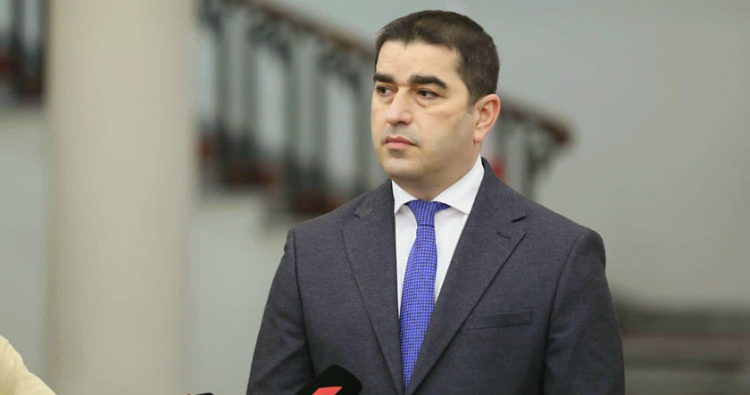“No violation” of Russia sanctions with flights - Parliament Speaker

In comments for the local media, the Parliament Speaker said it was “unfair to demand” the Government impose its own sanctions on Russia “when no country and no organisation guarantees the military and economic security of Georgia”. Photo: Parliament of Georgia
Georgian Parliament Speaker Shalva Papuashvili on Tuesday said it was “important” that “no foreign politician or [international] body was saying the country was violating the Western sanctions on Russia for its invasion of Ukraine through the resumption of flights between Georgia and Russia.
Papuashvili was making the comment following criticism by a part of the domestic opposition and international partners of the resumption of direct air connections between the two countries last week.
In comments for the local media, the Parliament Speaker said it was “unfair to demand” the Government impose its own sanctions on Russia “when no country and no organisation guarantees the military and economic security of Georgia”.
It is important to look at the facts. In the case of direct flights with Russia, there is no talk of any resumption from Georgia's side - Georgia itself had never stopped direct flights with Russia. Despite the fact that we had a war with them in 2008, neither the then [United National Movement] Government, nor the subsequent [Georgian Dream] Government created any barriers to direct flights with Russia”, Papuashvili said.
“In response to the [United States] State Department's concerns, one important thing is that no foreign politician or any particular [international] body is saying that we are violating or circumventing any sanctions with these flights. Let us agree that direct flights do not violate any international sanctions. If there is any motivation behind [claims to the contrary], then that motivation should be discussed”, the Parliament official continued.
Papuashvili also rejected “fake news” from a part of the domestic opposition about alleged launch of maritime traffic between Georgia and Russia, following a report in the Armenian media on Monday of a vessel transporting freight between Georgia’s port of Batumi and the Russian harbour of Novorossiysk.
It was about the transportation of commercial cargo by a ship that fully belonged to Armenia. Georgia, as a participant of the international convention - which implies that a country that has access to the sea - is obliged to give full and free access to the sea to a landlocked country”, he noted.
 Tweet
Tweet  Share
Share